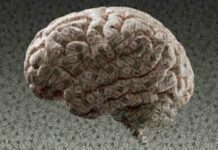Constructing Alternatives to the DSM: An Interview with Dr. Jonathan Raskin
Dr. Raskin discusses psychotherapists’ dissatisfaction with current psychiatric diagnostic systems and explores alternatives.
Mental Health Service Users’ Perspectives on Family-Focused Recovery
Study explores a multifaceted approach to promote family-focused recovery practice.
“Maybe You Need Meds”: From Passive Patient to Finding My Voice
I made journaling non-negotiable. I started sitting in nature and running trails. I practiced being present and prioritized sleep. These things are often seen as what you do if your problems aren’t really that bad. But to me, these are the things I do to save myself every day.
In a Traumatised World, is Psychedelic Therapy our Best Hope?
From VolteFace Magazine: MDMA-assisted psychotherapy can play a major role in helping people heal from the effects of trauma.
"The results really are incredible and I’ve had...
Parental Conflict Changes Emotion Recognition in Children, Study Finds
Study suggests interparental conflict causes lasting damage in the way children are able to recognize and process emotions.
Psychologists To Livestream Summit on Global Interdisciplinary Health Care
The American Psychological Association is hosting a two and half day interdisciplinary summit on November 3rd through 5th entitled Global Approaches to Integrated Care: Translating Science And Best Practices Into Patient-Centered Health Care Delivery. The summit features presentations and discussions on social determinants of health, demographics, culture and health disparities, and patients’ perspectives, among others. It can be livestreamed here.
Alternative Therapies for Adolescent Depression as Effective as CBT, Study Finds
Brief psychodynamic and psychosocial interventions help maintain reduced depressive symptoms
Rethinking Therapy: Making Our Worlds as We Would Like Them to Be
It’s funny how things turn out. I would never have anticipated becoming interested in the way in which psychological treatment is provided to people. A benign comment by a manager at the beginning of my clinical psychology career, however, piqued my interest and things have never been the same since.
10 Reasons Survivors Might Know More Medicine Than Psychiatrists
We've been discussing a potential role for psychiatrists on this site, and I wanted some of the doctors to understand why many mental health...
Sunday Flipside: The Most Counter-Intuitive Psychology Findings Ever Published
The British Psychological Society's Research Digest reviews "10 of The Most Counter-Intuitive Psychology Findings Ever Published." These include classics such as Self-help Mantras Can...
“What Barbara Ehrenreich Gets Wrong about Gratitude”
Barbara Ehrenreich has been a strident critic of positive psychology. Jason Marsh explores whether she might be missing something when it comes to the research on gratitude.
Sunday Music: “Even Out of Severe Depression There Comes Insight”
Maria Popova provides some excerpts about music, madness and therapy from the new book, Joni Mitchell: In Her Own Words, from the iconic Canadian...
Bipolar Disorder and Goal-Setting
Researchers at the UCs Berkley and San Francisco, and the University of Miami, suggest in a paper in Clinical Psychology & Psychotherapy that bipolar...
No Publication Bias in Meta-Analyses of Psychotherapy for Schizophrenia
A review by German researchers of all meta-analyses (with sufficient data) of psychotherapeutic interventions for schizophrenia up to September, 2010 found evidence that psychosocial...
What Are Best Practices For Psychosis And What Gets In The Way?
Research investigates clinicians’ perspectives on best care practices and the complicated realities of providing care in the face of agency limitations and mechanized interventions.
Overprescribing for Medicaid Kids Due to Shortage of Alternatives
From Modern Healthcare: Physicians may be overprescribing psychotropic medications to children on Medicaid or CHIP, which may be partly due to inadequate access to alternatives...
Psychology’s Power Tools
In this piece for Aeon, David A. Sbarra discusses the philosophy and science behind cognitive behavioral therapy and explains why it is so effective.
"Importantly, emotions...
A Decade of Searching for the Needle in the Haystack
Ever since I recovered from pharmaceutical abuse that nearly killed me over a decade ago, I haven’t used mental health services. There were many reasons for this and I can’t say I was always decidedly against them for myself, or entirely convinced I couldn’t be helped by a good therapist. And then I got lucky, and found someone I can talk to each week.
The Usefulness of Dread
From Aeon: Although anxiety may be a major source of discomfort and suffering, it can also play an important role in the development of our...
Psychologist Rethinks Psychotropic Medications, Calls for Renewed Dialogue
Psychologist and Professor Amber Gum has published the story of her personal journey of rethinking psychotropic medication in a special issue on "The Politics of Mental Health" in The Journal of Medicine and the Person. Influenced by Mad in America and the work of Robert Whitaker, Gum became aware of evidence that “suggests that psychotropic medications are less effective and more harmful than most believe” and now hopes to encourage other mental health professionals and researchers to engage in open-minded, critical self-assessment of standard practices.
Video Documentary About the Controversial Topics
From London City Psychotherapy: Between January 1943 and May 1944, the British Psychoanalytic Society held ten meetings to resolve major disagreements over the theory, practice, and...
Pierre Janet and the History of Psychological Treatments
In this piece for Holistic Elephants, Bernard Guerin discusses Pierre Janet's book Psychological Healing: A Historical and Clinical Study, which describes a variety of mental health...
Childhood Adversity Influences Levels of Distress in Voice Hearers
Research finds that hearing negative voices explains how childhood adversity is related to distress.
Joshua Gordon Wants to Remake Mental Health Care
From Undark Magazine: Joshua Gordon, the new director of the National Institute of Mental Health, plans to invest heavily in brain research; he hopes to...
Fostering Secure Attachment Prevents Depression and Anxiety
Researchers from China and the Harvard Medical School studied the effects of anxious and avoidant attachment on the development of depression and anxiety in...























